Space
Sign up for our newsletter
We summarize the week's scientific breakthroughs every Thursday.
-
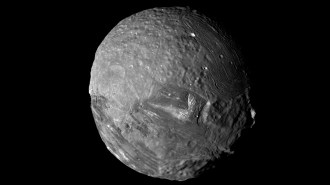 Planetary Science
Planetary ScienceBoiling oceans may sculpt the surfaces of small icy moons
Simulations show that subsurface oceans on small moons may hit boiling conditions, potentially creating features like Miranda’s distinctive ridges.
-
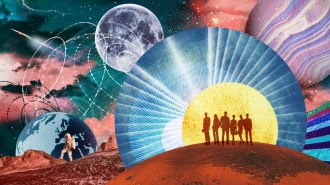 Space
SpaceAmerica risks losing its role as a space science pioneer
Funding uncertainties are pushing U.S. space scientists out of the field and putting existing and future space missions on the chopping block.
By McKenzie Prillaman and Emily Conover -
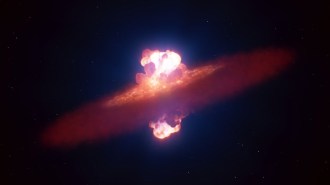 Astronomy
AstronomyEarly views of a supernova’s first moments reveal a lopsided blast
Some of the earliest images ever taken in the wake of massive star’s death give astronomers important clues about what triggers a supernova.
-
 Planetary Science
Planetary ScienceHow did Pluto capture its largest moon, Charon?
Planetary scientist Adeene Denton runs computer simulations to investigate Pluto, the moons of Saturn and other icy bodies in the solar system.
-
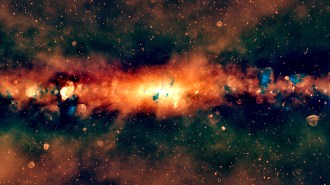 Astronomy
AstronomySee the largest, most detailed radio image of the Milky Way yet
Supernova remnants, stellar nurseries and more populate the new edge-on view of the Milky Way as seen from Earth’s southern hemisphere.
-
 Astronomy
AstronomySome planets might home brew their own water
Tests on olivine hint that water-rich exoplanets could generate H2O internally, possibly explaining ocean worlds and even some of Earth’s early water.
-
 Space
SpaceBlack holes are encircled by thin rings of light. This physicist wants to see one
Theoretical physicist Alex Lupsasca is pushing for a space telescope to glimpse the thin ring of light that is thought to surround every black hole.
- Astronomy
Astronomers saw a rogue planet going through a rapid growth spurt
The growth spurt hints that the free-floating object evolves like a star, providing clues about rogue planets’ mysterious origins.
- Astronomy
See a 3-D map of stellar nurseries based on data from the Gaia telescope
The map, spanning 4,000 light-years from the sun in all directions, combines a chart of space dust with the effects of a rare type of young, hot star.
-
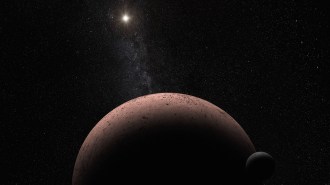 Planetary Science
Planetary ScienceDwarf planet Makemake sports the most remote gas in the solar system
The methane gas may constitute a rarefied atmosphere, or it may come from erupting plumes on Makemake’s surface.
By Ken Croswell - Space
This black hole flipped its magnetic field
Event Horizon Telescope data reveal the magnetic field around M87* shifted, weakened and then flipped, defying theoretical expectations.
-
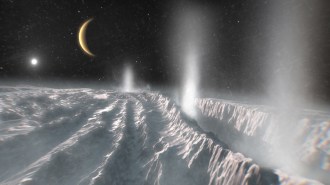 Planetary Science
Planetary ScienceEnceladus’ ocean may not have produced precursor chemicals for life
Building blocks of life have been found on this moon of Saturn. They may come from chemical reactions beyond Enceladus’ possible life-supporting ocean.